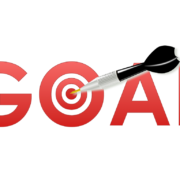We do love a quiz that will supposedly reveals ourselves to….well ourselves. Am I right? Want to take personality tests that are actually accurate? We desperately want to understand ourselves and our relationships with others. Unfortunately taking a well researched test eludes the vast majority of us. Why?

He Does Not Get Me!
Popular Personality Tests
There are two well known and prevalent personality tests that devotees swear by and that profitable testing companies have made millions from in the corporate world. They are the Myers Briggs Type Indicator (MBTI) and the Enneagram. The corporate world continues to rely on the official and ubiquitous MBTI to assess future employees, compatibility, and job performance. The Enneagram continues to be popular online and is widely adapted into countless BuzzFeed-type quizzes. Neither is based on careful, long term research.
The Three Problems With These Popular Tests
First and foremost is the lack of research in composing these personality tests. The MBTI is based loosely on the work of Carl Jung and his personality typologies. After taking the MBTI, for example, you receive your 4-letter designation, or “type”, of which there are 16 possible combinations. The Enneagram is designated with a number for the main type (there are nine), and an additional ‘wing’ sub-type. The Enneagram includes mystical elements and supposedly ancient origins that perhaps appeal to the desire for mystery and the unknown the exists in each of us.
The second issue with these personality tests is the bifurcation. That is the splitting on the MBTI into ‘either-or’ black and white types vs a range or a spectrum. For example, if you scored near the middle for introverts, but you are just above the cutoff for extrovert, then extrovert you are. This begs the question of accuracy. The Enneagram often finds overlapping types, or you see yourself in several of the areas when you test out as a specific type. That type may not fit well into varied situations.
The last issue is confirmation bias. We see what we want to see. We give more credence to the positive traits and less to the ones we don’t especially agree with. These tests also tend to name and describe results in positive types like The Helper, The Achiever, The Investigator, The Peacemaker. What about the negative facets of our personalities? It’s not all unicorns and fairy dust after all.
Why Do We Love These Types Of Personality Tests?
Who am I? It is true that we seek hidden knowledge about ourselves, and often don’t acknowledge that maybe we do know ourselves pretty well. Or at least we typically know how we would choose to act in a given situation. And most of us are not willing to be vulnerable enough to ask a trusted friend or colleague what they really think of some perceived negative aspect of our personality. Did you know that research shows that friends and family tend to see us the same as we see ourselves?
We also have a compelling need to feel normal and to belong. We are social animals with the longstanding survival instinct of being part of a group. In ancient times, being excluded from the group meant certain death. Hence our need to join. Even loners typically have one or two people they trust and confide in. And we seek to understand the difficult work of our human relationships on a personal level. Why else would a booming self-help industry exist with countless books, podcasts and resources to do just that?
When you know all that, it makes you wonder why reliable personality tests aren’t more popular. (Don’t worry, I’m getting to the part where I suggest one you can take!) The truth is wonky personality researchers stink at marketing. And more accurate tests don’t assign these positive labels we tend to favor (via our confirmation bias). They assign traits, and those are on a scale. They are not defined as ‘either you have it or you don’t.’ But their results are also more stable over time and more accurate in helping you predict how you will behave. Even the Myers Briggs people report that 35% of their test-takers received different personality types or results after a four week period.
Then What ARE Reliable Personality Tests?
Ahhhh—I thought you’d never ask. A true personality assessment will evaluate the Big Five: extraversion, agreeableness, conscientiousness, emotional stability and openness to experience. It assesses personality traits vs types. These tests are scored differently, typically on a scale or continuum, say 1-10, avoiding black or white results. They are developed using scientific methods like the lexical hypothesis. In this type of research, over 4500 worlds describing personality traits were assessed cross-culturally. These tests can also show how you have changed over time, and they tend to assess things that personality should predict, like like your choices in life satisfaction, jobs, academic performance, and relationship satisfaction.
A true personality assessment will evaluate the Big Five: extraversion, agreeableness, conscientiousness, emotional stability and openness to experience. It assesses personality traits vs types.
So here is one you can take. It is called the IPIP: International Personality Item Pool. There is a short version consisting of 120 questions and a long version with 300 items. You can take this assessment free online, but if you want to save your results you must copy and past them into a separate document. The results disappear after you leave the site. You do not have to give your real name or identifying information. I think the short version is sufficient to get an accurate picture of your traits. Read the sub-trait results carefully, as all of it makes for a more accurate, well-rounded assessment.
If you want help with understanding how these traits of yours impact your relationships from a caring unbiased person, contact me here. Happy testing!
Resource: Above information adapted & summarized from: False Portraits, article in Psychology Today, February 2020 issue










